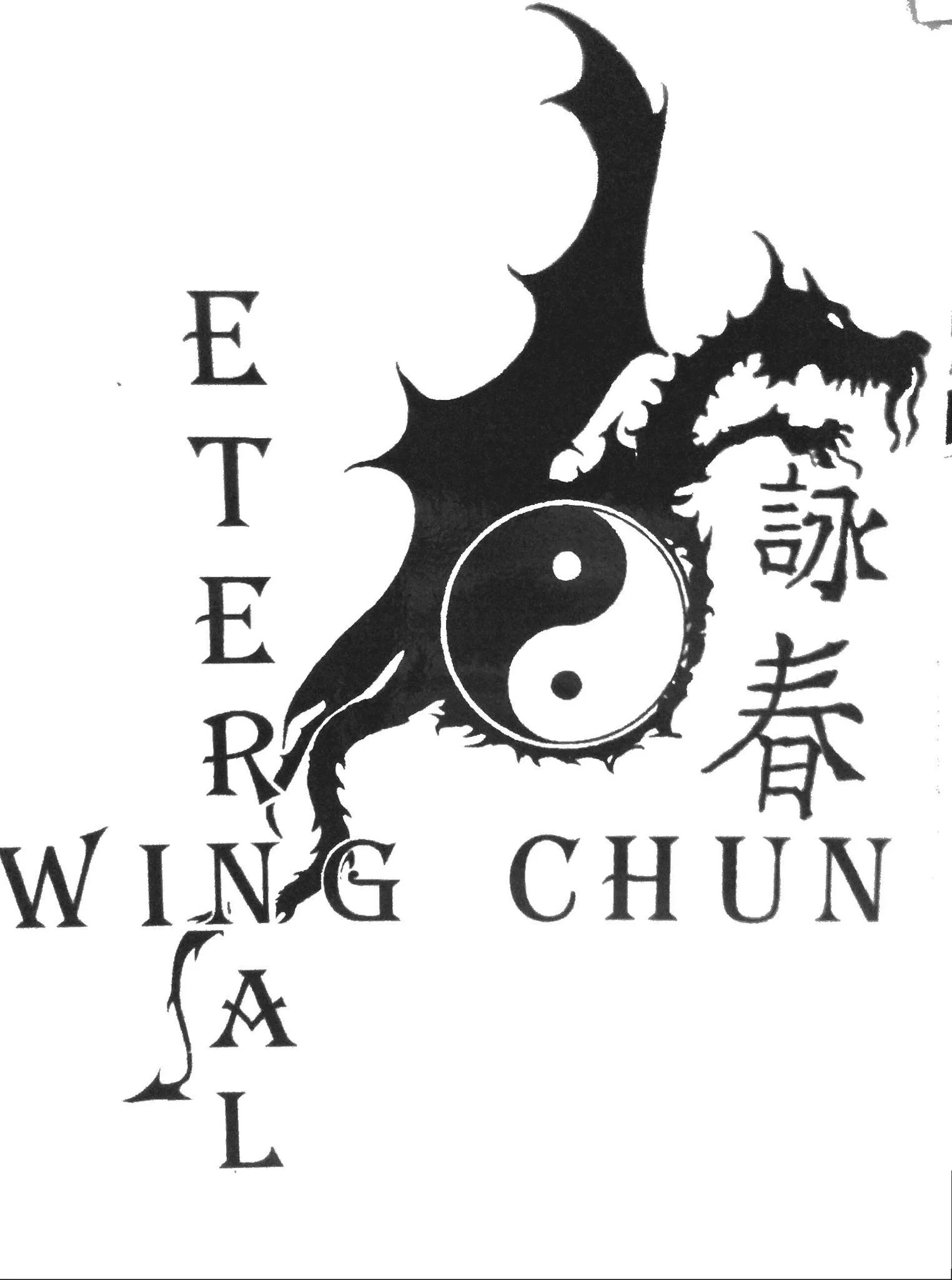Resilient Grace: The Art of Women’s Wing Chun
Do you dislike violence but would like to be more resilient and able to protect yourself if confronted? Would you like to feel more comfortable, secure and alive in your body? Do you enjoy learning new skills using your mind, body and senses?
If any of the above apply to you, Alena Kennedy Women’s Wing Chun: for Wellbeing and Self-Defence might be for you.
The twin aspects of our program:
WELLBEING
Improve health (mental and physical).
Increase strength, fitness, coordination, reactions, balance, stability, agility and memory.
Wing Chun is a somatic practice as it uses mindful and focused physical movement to connect with one's body and emotions. Through this we may develop confidence, courage and overall wellbeing.
We use Wing Chun and other somatic exercises, including breathing and qigong to help regulate and restore balance to our nervous systems and strengthen our resilience towards challenges.
Wing Chun is enjoyable and if you practice regularly, you may increase your vagal tone which in turn can improve your overall level of health, vitality, resilience and wellbeing.
I am aware that some women may feel fearful to engage in activities with physical contact, particularly if they have experienced emotionally or physically painful interactions. By practicing exercises that graduate slowly in intensity, in a safe environment, participants can accustom themselves to engage in self-defence activities and grow to enjoy them a lot. Our dynamic fighting exercises are conveyed by touch rather than by heavy impact. We have punching and kicking pads for full force practice.
Interspersing more challenging interactions with calming and mindful exercises can help us to expand our ‘window of tolerance’ towards aggression or other challenges, with the result that we become more resilient and confident in our bodies and minds.
We have strategies to help participants to re-settle their emotions and nervous-systems if they feel overwhelmed. Participants are free to decide if they want to join in an activity or to watch and wait it out, or practice a settling exercise instead. If you experience problems, talk to me and we can modify the exercises to make you more comfortable.
Challenging ourselves to a tolerable level helps us to become resilient.
DISCLAIMER: Please see below under ‘OUR GROUP’
SELF-DEFENCE
Learn simple and practical strategies and techniques to protect yourself.
Wing Chun is a style of Kung Fu believed to have been designed by a woman, Ng Mui, a Buddhist nun and an expert martial artist in Kung Fu. She wanted to design a form of self-defence that would not disadvantage women and smaller, weaker or older people.
Wing Chun focuses on calmness, stability, natural human body movements, speed, directness, balance and awareness of the opponent's vulnerable areas. Important features are its economy of movement (blocks and strikes are made at the same time) and its minimal use of brute force. Wing Chun teaches relaxation, based on the idea that tension restricts the joints, compromises speed and power and tires the body.
Wing Chun is great for developing your mind and body coordination as we move different parts of our body at the same time for different purposes. For example: parrying and striking; striking and kicking. It is a form of ‘brain gym’. The ability to block attacks and to strike simultaneously is what makes Wing Chun so efficient.
Wing Chun is relatively simple compared to other martial arts because a few movements can be applied to multiple situations. With repetitive practice our responses become instinctive and automatic. That combined with correct use of our structure and energy makes the method formidable in real life situations.
Given that Wing Chun is a practical, effective street fighting form of self-defence, training with others is done with care to not injure anyone. We also develop camaraderie and trust, practicing to help each other rather than to compete with each other.
The internal aspect of Wing Chun is very important. Exercises build awareness of body position, posture, relaxation and of energy, with one's energy being used in an effective way to deliver optimal outcomes. The internal and relaxation qualities are exemplified in the First Form – Siu Nim Tau, which is practiced regularly.
OUR GROUP: Alena Kennedy Women’s Wing Chun
Feel safe in an accepting and supportive environment.
Make friends.
Women of all ages over 18 are welcome.
No previous skills are needed. A moderate level of health and fitness is helpful but not mandatory. However, if you have an illness or injury that might be affected by moderate exercise, advise us about it. A doctor’s note may be requested.
Women with previous experiences in martial arts are also welcome. Learning Wing Chun will be a new and interesting challenge. There is a saying that Wing Chun is easy to learn but hard to master. No matter how experienced one is, one can always practice Wing Chun to improve one’s use of energy, relaxation and power. Wing Chun has many subtle skills and learning to use them instead of depending on brute force can be quite challenging.
As we are creating a safe space for women (including those who identify as women), we do not allow men onto the premises. We hope that you understand and do not bring your partners or other males to the training site. If you have a male friend or partner who would like to observe or try out Wing Chun, I can give you the contact details of an experienced Wing Chun teacher who takes mixed groups.
DISCLAIMER: I am not a mental health practitioner. Although I make efforts to be trauma-informed, this practice is not a replacement for your mental health professional support. PRACTICE IS MEANT AS A GENERAL WELLBEING ACTIVITY AND YOU PARTAKE IN IT AT YOUR OWN RISK. Please, if you have any concerns about your personal mental or physical health, get advice from your health practitioner. If you suspect that an instruction is not right for your wellbeing, you are free to wait out that activity. We are all individuals with individual needs and one exercise may not suit everybody.
As Wing Chun is a potentially dangerous activity and one which requires full concentration to learn, the first rule for our classes is respect for one-self, for the instructor and for each other.
MY STORY
Wing Chun was made famous in the west through Bruce Lee’s films. Lee was a student of Grandmaster Ip Man and went on to develop his own particular style, with Wing Chun as its inspiration. Ip Man was instrumental in changing the Wing Chun culture (in China) from something elitist to being available to common people. There are movies made about this famous figure, notably ‘Ip Man’ 1 to 4, starring Donnie Yen. Wing Chun was taught in Sydney at the International Wing Chun Academy by Grandmaster Jim Fung. His program was greatly enriched by the visits of Grandmaster Chu Shong Tin, one of Ip Man’s best students. My teachers Master Scott Bollard and Adam Bentley both studied at International Wing Chun Academy and went on to develop their own practices. I am a descendant of this lineage.
I discovered Wing Chun quite late in life, after seeing the movie ‘Ip Man’ and being entranced by the elegance, speed, economical and seemingly effortless use of power by the actor Donnie Yen as he handled dangerous situations with calmness and composure. Although concerned that I was too old to resume a martial art (I had practiced aikido for 10 years as a younger person), I was warmly accepted into the local Wing Chun school. After training for 8 years, I have a level one black belt from Scott Bollard Wing Chun Kung Fu academy and am a qualified instructor. I am aware that many women are reluctant to join mixed groups despite that Wing Chun particularly suits women and older people, so I hope to encourage them to learn and discover its benefits by running an all women club.
I am planning a program that is holistic, including exercises to calm the nervous system and an approach that is trauma informed, so that women become empowered, confident, strong, resilient, along with all the other positive outcomes that come from practicing Wing Chun such as improved memory, coordination, reactions, balance, posture, intuition, body awareness, health; appropriate responses to unexpected or challenging events and recovery after those events.
I feel immense gratitude towards my teachers for showing me a way that is both practical as a method of self-defence and at the same time relaxing, energising and lots of fun.
Alena Kennedy Women’s Wing Chun will begin operating in the Wollongong, NSW area in March, 2026. Keep your eye on this page for developments!
You can make inquiries to alenasart@gmail.com
Wing Chun and Wellbeing: Writings
HELP NUMBERS
If you experience any psychological discomfort and feel the need to talk to somebody, please contact Lifeline on 131 114 or Beyond Blue on 1300 22 4636.
If you are in immediate danger, please dial 000. If you are concerned for your safety, please contact 1800RESPECT on 1800 737 732, which is a federally funded national sexual assault, domestic and family violence counselling service that offers a 24/7 helpline and referral.
Membership and Certificates





